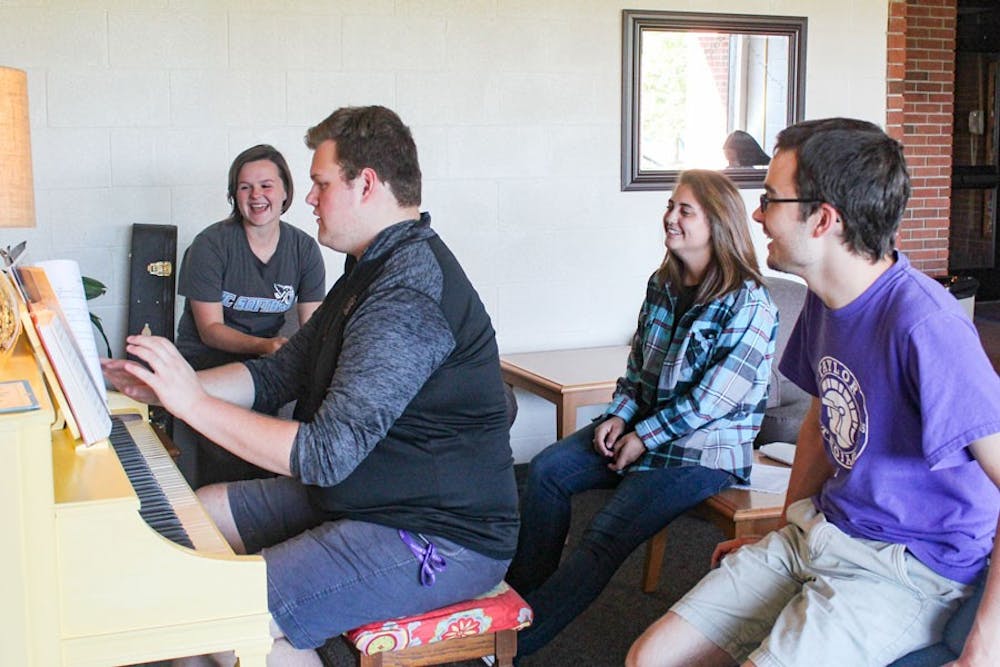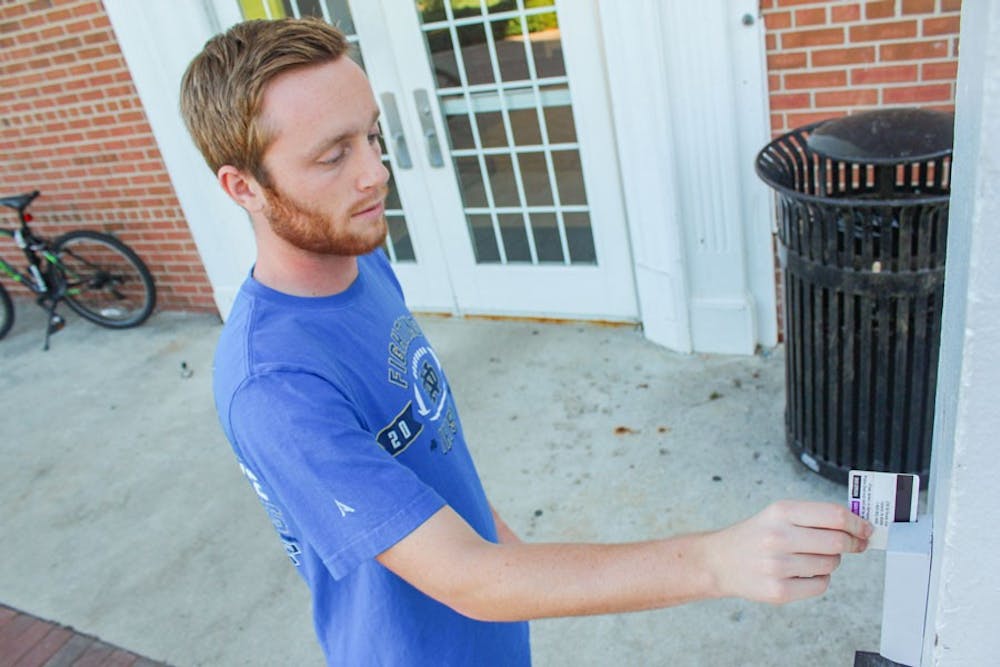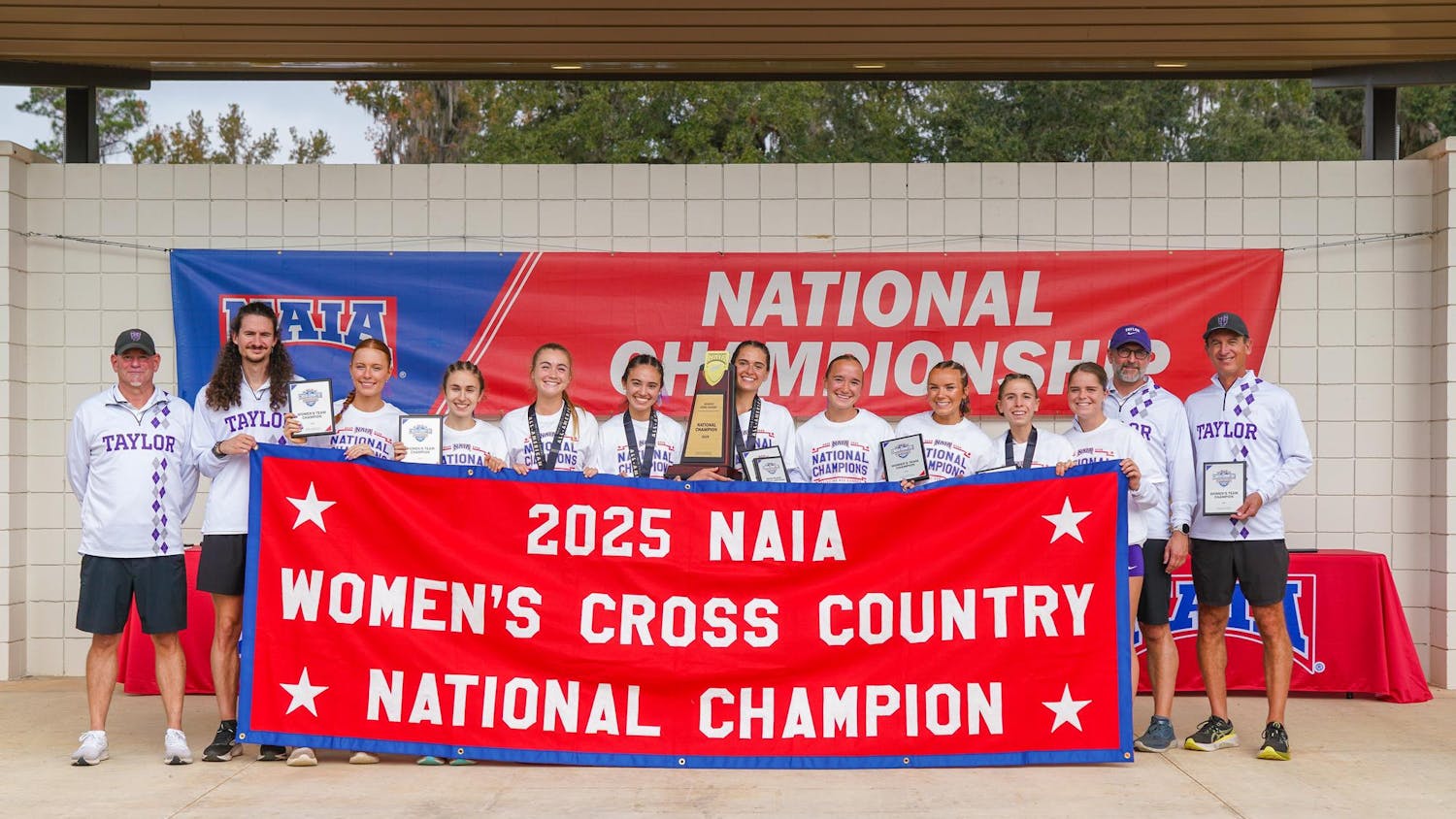By Annabelle Blair | Echo
A conversation between Taylor resident life team members and campus police department staff resulted in a new safety measure requiring keys or ID cards to enter all residential halls on campus.
Previously, main residence hall doors were kept unlocked during general open-hall hours during the day. This allowed anyone, including those not carrying student or faculty IDs, to access residence halls at certain times.
According to Jeff Wallace, chief of police, and Scott Barrett, director of residence life, the new safety precaution is a proactive step to enhance the community's safety, not a reaction to any kind of unsafe situation. "We're a very safe community," Wallace said. "And, actually, we'd like to keep it that way."
Barrett said the decision, put into effect this semester, was reached after examining the roles and purposes of hall directors, PAs, DAs and front desk employees and discussing these roles with the campus police department during spring and summer semesters.
The consolidation of Breuninger and Gerigfront desks was also considered in the decision to improve hall safety. Previously, each dorm had its own front desk and main door hours, which varied. Since the merger, locking both main doors eliminated the need to require separate main door hours with only one front desk open.
Since students have their ID cards readily available for meal swipes and library rentals, the administration felt that implementing this safety measure did not impose an undue burden on students.
Breuninger and Gerig Hall Director Abi Noble believes the safety change is a positive move that considers the best interests of Taylor community members. "It's inconvenient to dig through a bag or to realize we've lost track of our ID card somewhere," Noble said, admitting that she's done both. "But I think the trade-off is reasonable, and we will all (develop) better habits of keeping our cards handy."
Wallace noted, considering the technological advancement between the metal keys used ten years ago to the plastic ID cards and electronic system used today, safety measures need to keep up with current trends.

Outside vendors, such as service suppliers and maintenance crews who offer services to residence halls, can still receive access to those areas and are monitored by Taylor facility service personnel.
Although Barrett and Wallace agreed that locking hall doors can't necessarily guarantee safety, they said it adds an element of privacy and control over who does and does not have a right to be in the halls.
"We're not trying to prevent people from using something they're supposed to be using," Barrett said. "We're trying to make sure that, for the safety of our community, spaces are used in the way they're intended to be used by who they're intended to be used by."
Junior Taylor Puitz, Swallow Robin front desk manager, said she doesn't see an improvement in residence life based on the change, but she doesn't see any setbacks either. "There are still people that forget their IDs," Puitz said in an email. "We have to let them in, which is more work, when it used to not be a factor." However, Puitz says she thinks the change has improved security within the halls.
Wallace said the precautionary approach is consistent with Taylor's principles: "We would not be honoring our students if we didn't know of a way that we could take one more layer . . . of approaching safety in a way that is beneficial to them."





